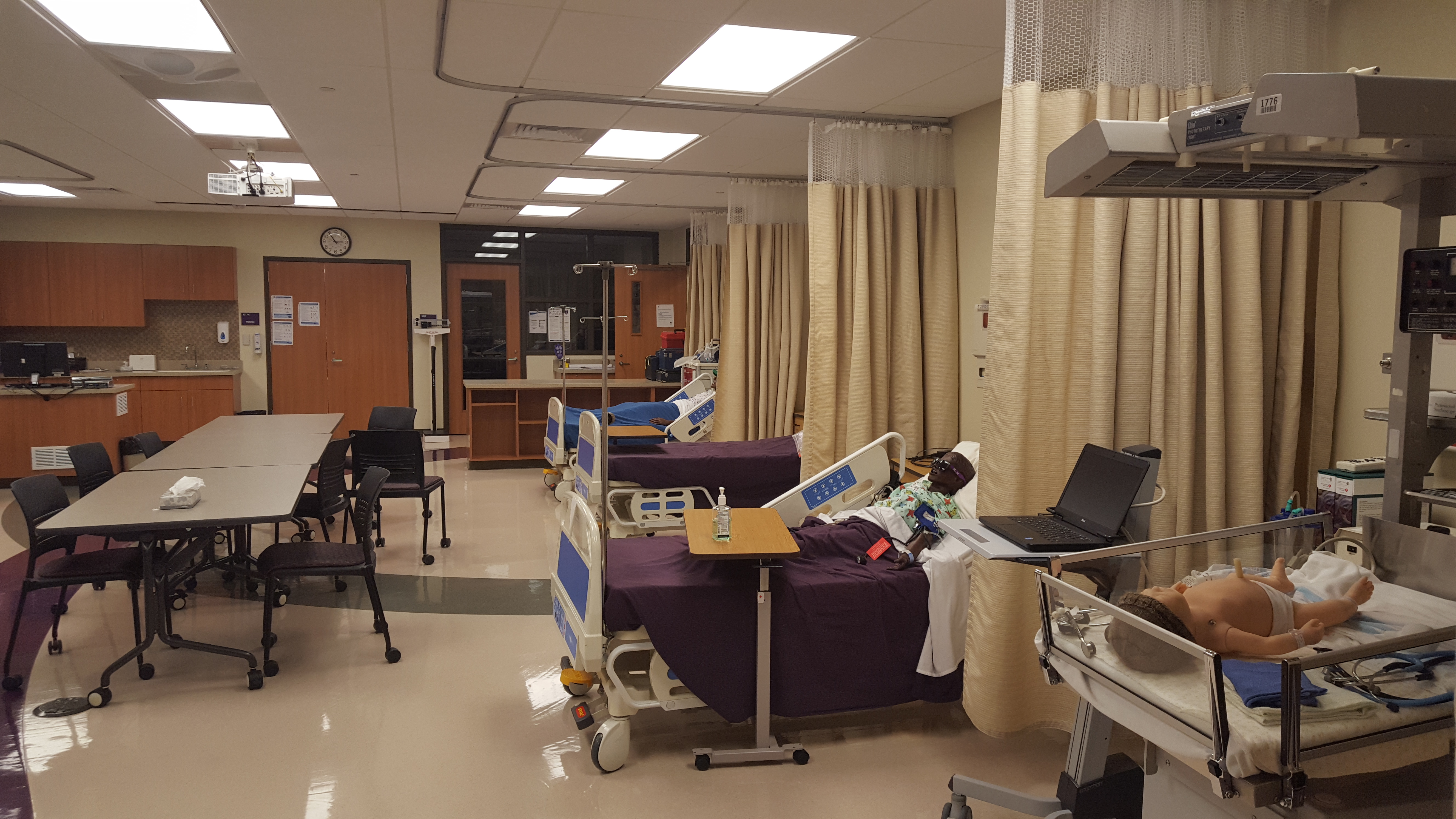
The Missouri Department of Higher Education recognized Truman State University’s nursing program with a $150,000 grant this fall.
Nursing Department Chair Stephanie Powelson says when sufficient funding was available, the Missouri State Board of Nursing issued a request for proposals, which participants usually have a month to complete and send in. Powelson says this year, because of summer schedules and because the request for proposals came out around July 4, the nursing department only had about two weeks to complete the proposal. The Missouri Department of Higher Education oversees the process of receiving the proposals and awarding the grants, she says. Powelson says this is the third grant the nursing department received from the Missouri State Board of Nursing — each one for $150,000.
Powelson says they began announcing grant recipients in September, and the money was released in mid-October.
“I think we had a good start because we’ve received this kind of grant before so we had an idea of the data they wanted to support it,” Powelson says.
Powelson says the nursing program is limited by four areas. One was funding, she says, because Truman is a public university and can’t easily increase tuition — the second was faculty because hiring qualified nursing faculty is a challenge — the third was clinical sites because Truman is in northeast Missouri and competes with other nursing programs for clinical sites — and the fourth was technology because the program has to continue to expand and update technology.
Powelson says the nursing department addressed one main objective in the proposal which was to increase the clinical faculty and staff positions to support students the department has and growth of the department. She says the department asked for two part-time staff positions — an additional person in the nursing lab and a person to help with clinical site coordination. The nursing department has more than 50 clinical contracts, she says, including contracts in St. Louis, Columbia, Hannibal, Kirksville and Kansas City. She says it takes a fair amount of coordination to communicate with the clinical sites and ensure expectations are met for each facility.
Students need to complete approximately 850 clinical hours to earn their degree, Powelson says. These hours are completed at any of Truman’s contracted clinical sites.
“We think it’s good for the students to have some other kinds of experiences,” Powelson says. “They get to see what it’s like to be in a small, medium or large facility and they get to see, ‘Do I enjoy acute care? Do I enjoy home health? Do I see myself as a psychiatric nurse?’”
The first and second grants awarded to the nursing program focused on the Accelerated BSN program, Powelson says, which is for students who already have a bachelor’s degree in another field but also want to be a nursing major. Students can finish a nursing major in 15 months once they’ve finished their prerequisite courses, she says.
There’s a huge demand for nursing programs, Powelson says, with usually more applicants than can be accepted — the nursing program probably has four applicants for every available seat. But she says they aren’t trying to expand the program because they want to make sure it’s an excellent program and that it takes in good students and prepares future nurses to be exceptional in providing patient care.
Pamela Melvin, Nursing Simulation Center coordinator, says she coordinates many of the skills modules, runs simulations and supports the other faculty when they run simulations. Melvin says she also schedules activities in the NSC, maintains inventory, orders supplies and fixes issues with the lab when necessary.
“There are lots of things we could do, or do over and make it better, so we are continually assessing what we’re doing and making changes and trying to improve it,” Melvin says.
Melvin says the department is consistently looking at outcomes and trying to incorporate experiences students don’t receive in clinicals into lab simulations.
Modules in the past have just been basic skills which students perform Melvin says, but they are moving toward simulation-like scenarios. She says simulation scenarios allow for a more realistic experience where students have to take into account multiple scenarios, like interacting with the patient, using critical thinking, being aware of safety issues and using technology.
“We try to be as realistic as possible working with Manikins,” Melvin says. “We’ve also even talked about using real people from the community to come in and be a patient.”
Kendra Jones, nursing technology coordinator, says she has been working at Truman since June 2016. Jones says she also works as a hospice nurse and that it is interesting to be involved in the student education aspect of the field.
Jones says she helps with a variety of things, including working with the new Pyxis machine, a machine that provides medication and information about medication. Jones ensures medications are up to date, stocked and appropriate for the modules and simulations students are doing. She says she also makes sure equipment and Manikins are up to date and sometimes helps with simulations if the faculty needs assistance.
She says the Manikins have pre-programmed scenarios which can test students, or they can be programmed however the instructor wishes. The lab has Manikins of babies, children and adults to provide a range of experiences to students, she says, all of which provide different functionalities.
“[The students] do modules every week, during the modules they are learning about different nursing skills,” Jones says. “Hopefully with more staff it’ll make it more feasible to do more of these activities that we like to do.”
This article appeared in the Oct. 20 issue of the Index.
